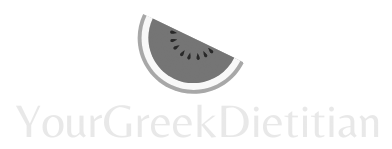First steps
Before we start working together, you will be asked to complete a detailed questionnaire, which will provide me with all the necessary information to create your individualised lifestyle, nutrition and diet plan. Once I get all the information required, I will carefully review and prepare an individualised plan to help you achieve your goals. You will get this via email, along with other supporting documents (e.g. leaflet explaining the underpinning principles of the plan, food exchanges, recipes, food diary).
After you review all these documents, a call or follow-up email is usually needed in order to explain how the plan works and to answer any initial questions. The whole method is based on what works best for each person, as an individualised approach is the key for maximising results and maintaining them in the long term.
During our collaboration, you will also be provided with an optional list of reliable scales, body composition analysers and fitness trackers, in case you wish to monitor the effects of your new diet and activity habits on your weight and body composition.
The dietary component of the plan is based on the Mediterranean diet principles. It does not involve special meals, complicated recipes or food supplements. On the contrary, it aims to support you and your family to adopt a healthy balanced diet FOR LIFE.

Follow-up
Follow-up takes place on a weekly basis mainly via electronic food diaries. The individualised plan is usually updated every two weeks, so as to make the necessary changes and updates (new meals, food options, recipes). If a scale / body composition analyser / fitness tracker is available, feedback on your weight / body composition / physical activity progress is also provided.
During follow-up, you will be introduced to the method of setting SMART diet and activity goals. This is an effective strategy for behaviour change that will support you throughout your journey to a healthier lifestyle.
Apart from the individualised plan and supporting documents, nutrition education can also be offered in the form of leaflets or presentations. The topics will depend on your personal interests and needs (e.g. energy balance, food groups, label reading, eating out).

1. Weight management
- Adult obesity: individualised lifestyle, nutrition and diet plans aiming to support realistic, gradual weight loss, by respecting your needs (physical and psychological) and supporting you to adopt healthier eating habits FOR LIFE.
- Childhood obesity: non-dieting approach, focusing on individualised goal setting and family support. Desired outcomes are weight maintenance or gradual weight loss (depending on the child’s weight status), while respecting the child’s physical and emotional development. The ultimate aim is the adoption of healthy eating and activity habits for the whole family. The new lifestyle should cover the child’s individual needs and at the same time allow them to enjoy food and grow to love their body.
- Weight gain: individualised diet plans for helping underweight people to gain weight in a healthy, balanced way.
2. Healthy eating
- Pregnancy: diet plans aiming to 1) cover the dietary needs during the demanding period of pregnancy, 2) ensure weight gain is within the desired range, 3) minimise diet related pregnancy complication (such as gestational diabetes).
- Lactation: these plans support women to make informed decisions on the type and quantity of food they consume during their magical journey of breastfeeding. The aim is to cover both theirs and their baby’s dietary needs, while getting back in shape postpartum.
- Healthy eating for children and teenagers: healthy eating advice for these challenging periods -both in terms of dietary needs and temperament!
- Healthy eating for the elderly: older age is a challenging period and getting the nutrients needed may prove tricky, especially for people who struggle to follow a healthy balanced diet due to different reasons (health conditions, medication, food purchase/preparation etc).
3. Health conditions (selectively)
- Diabetes
- Cardiovascular disease
- Hypertention
- Metabolic syndrome
- Osteoporosis
- Anaemia

 Your Greek Dietitian Online
Your Greek Dietitian Online